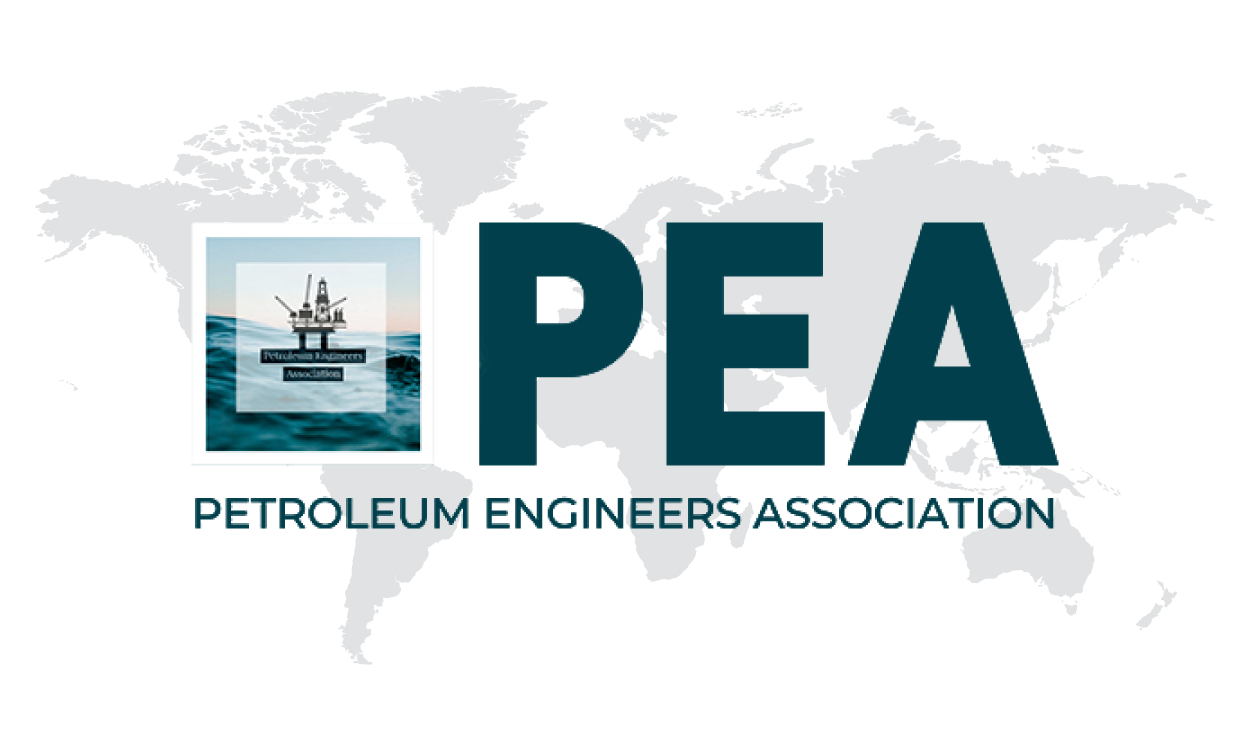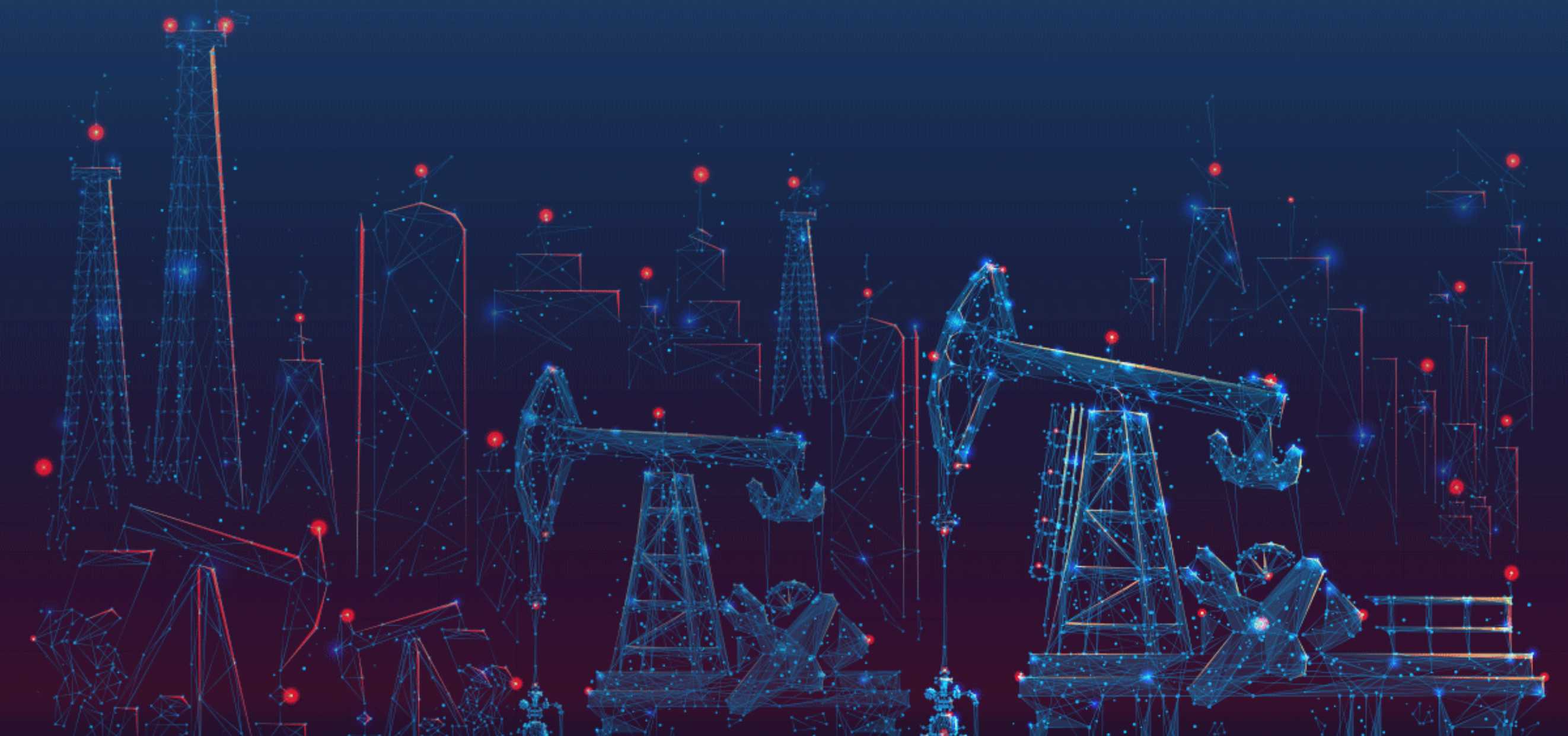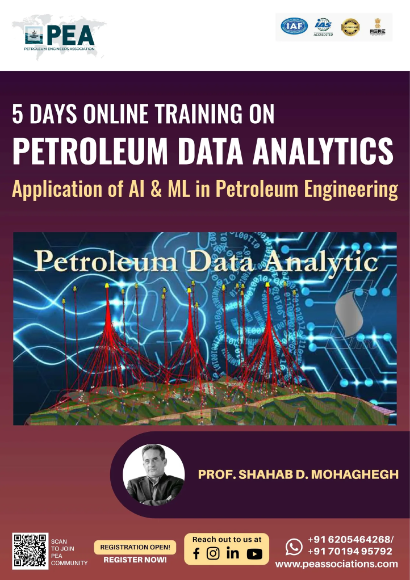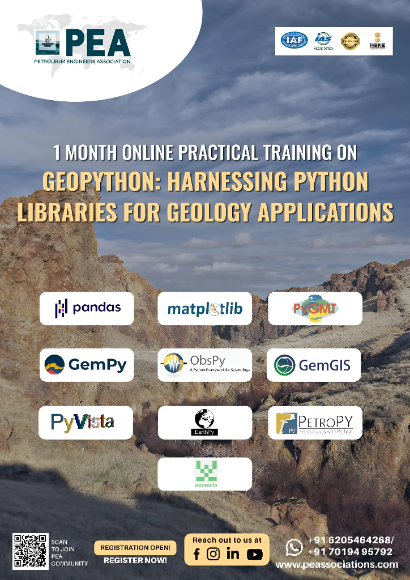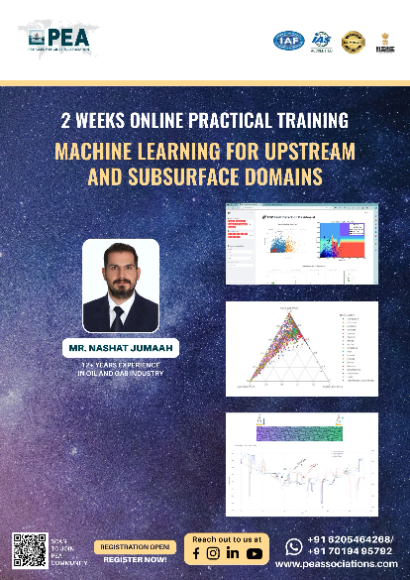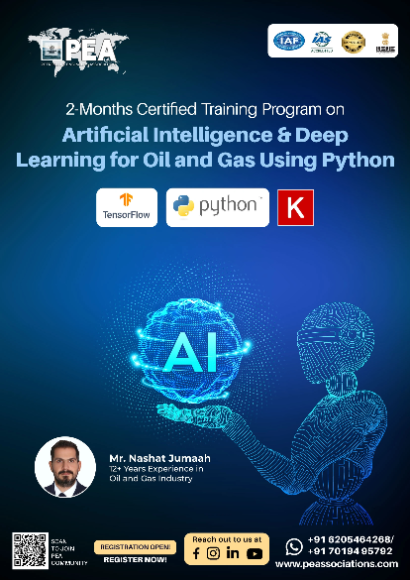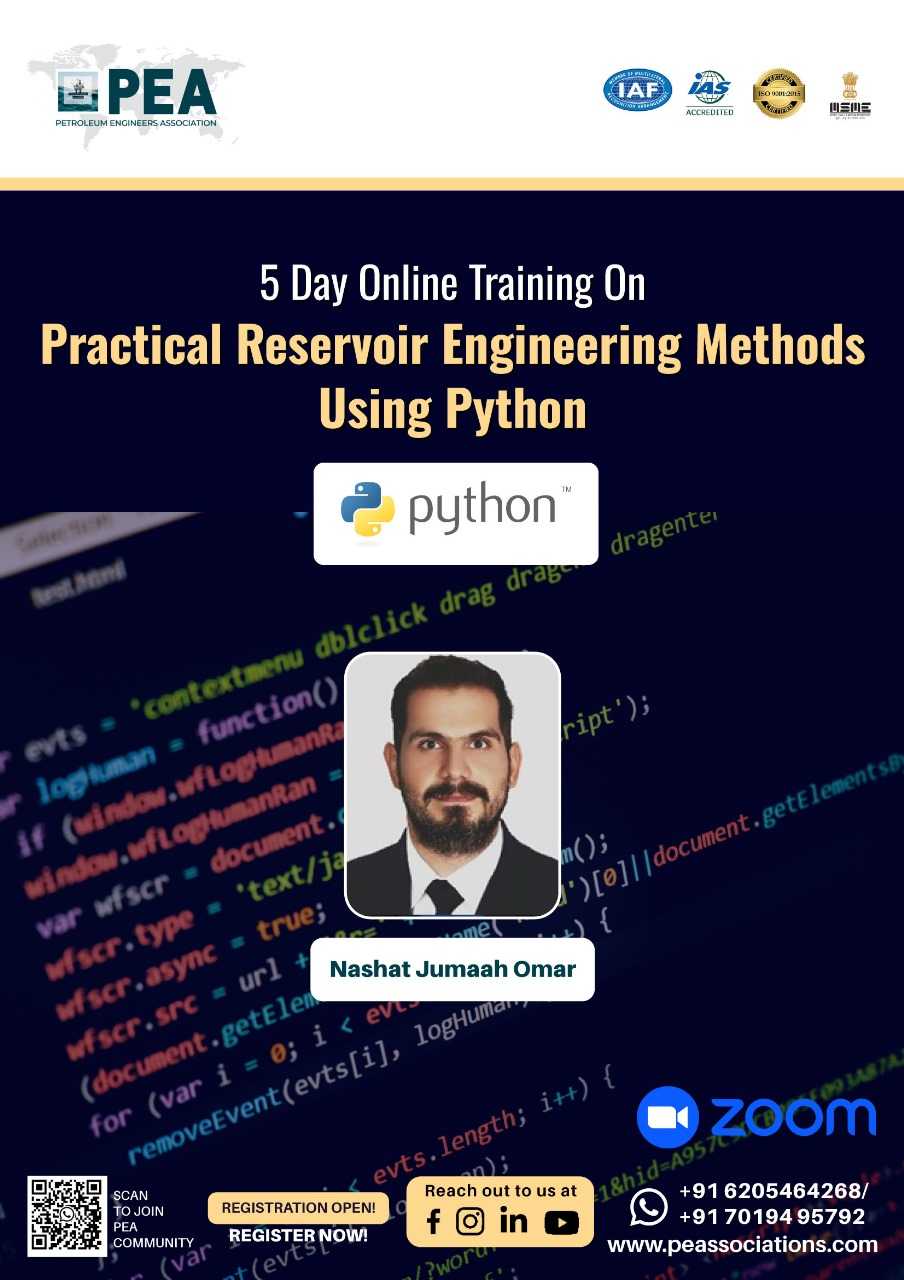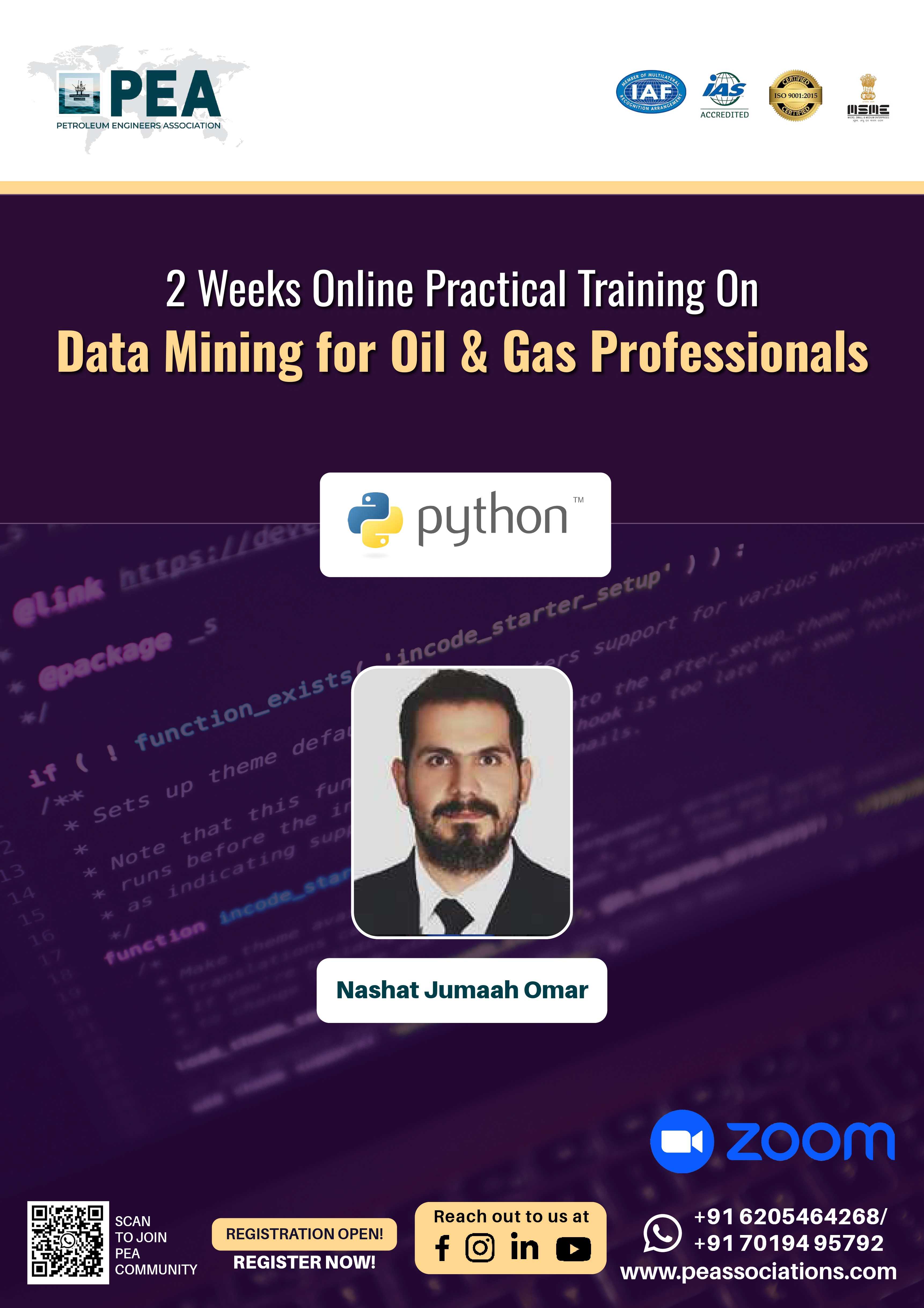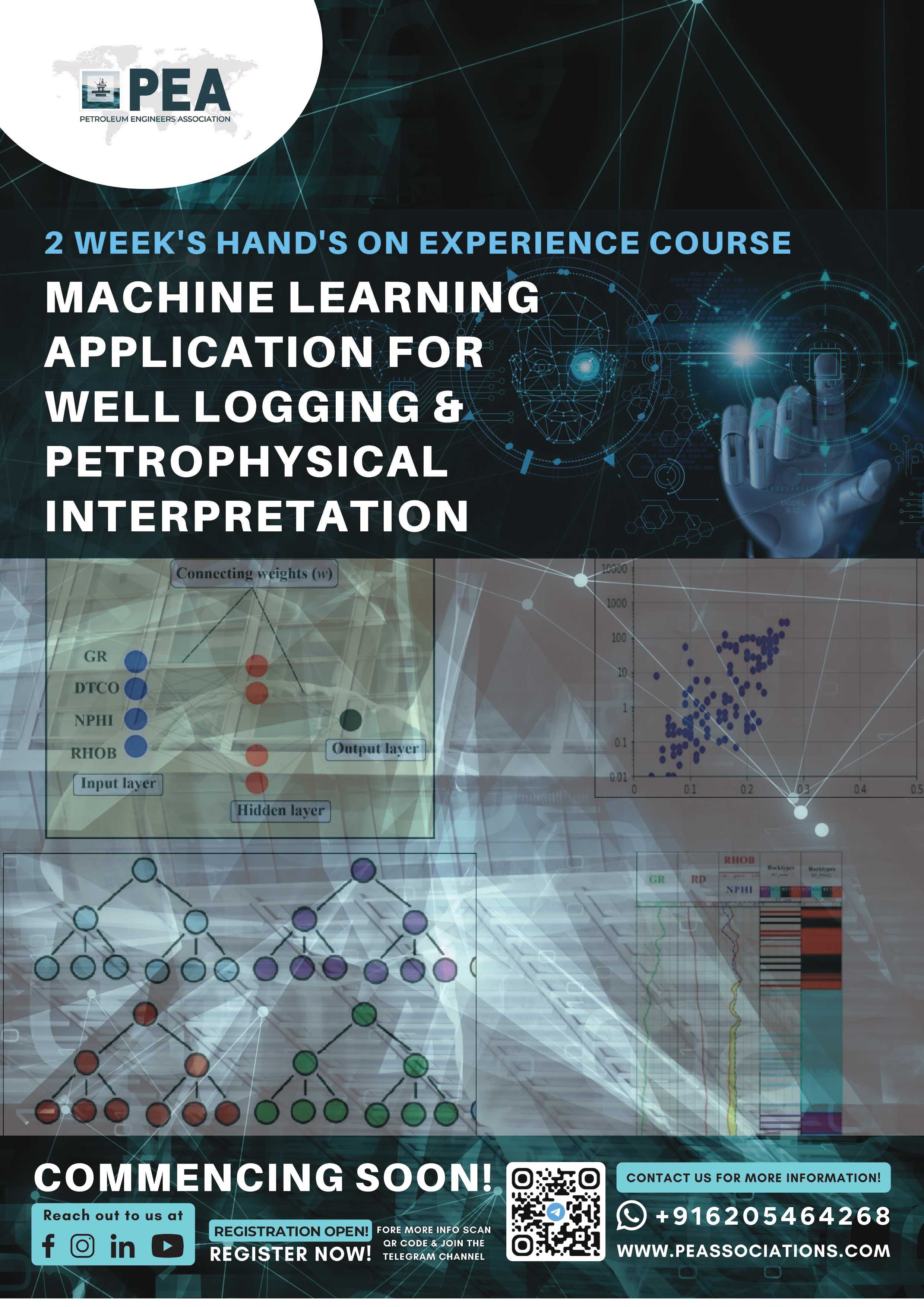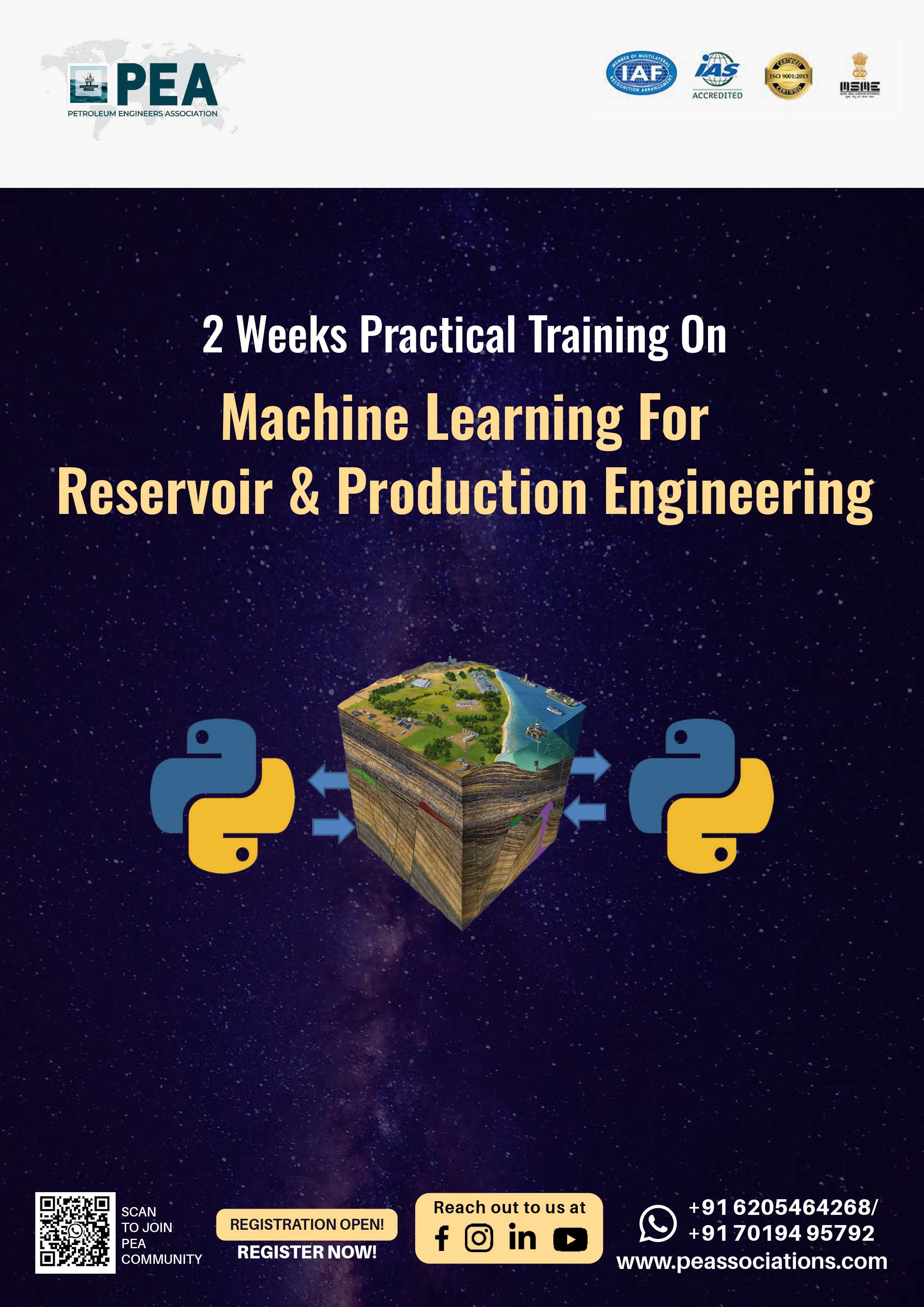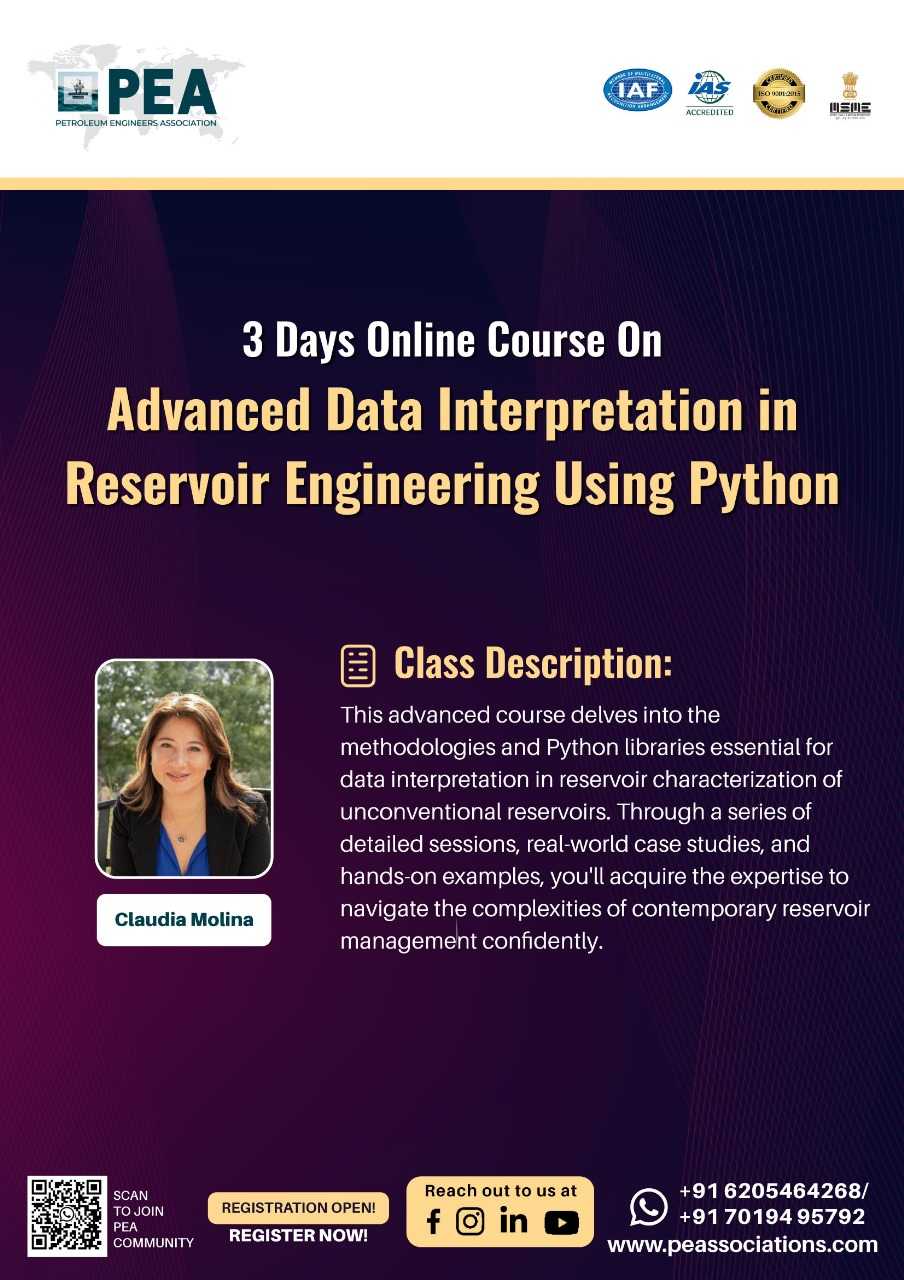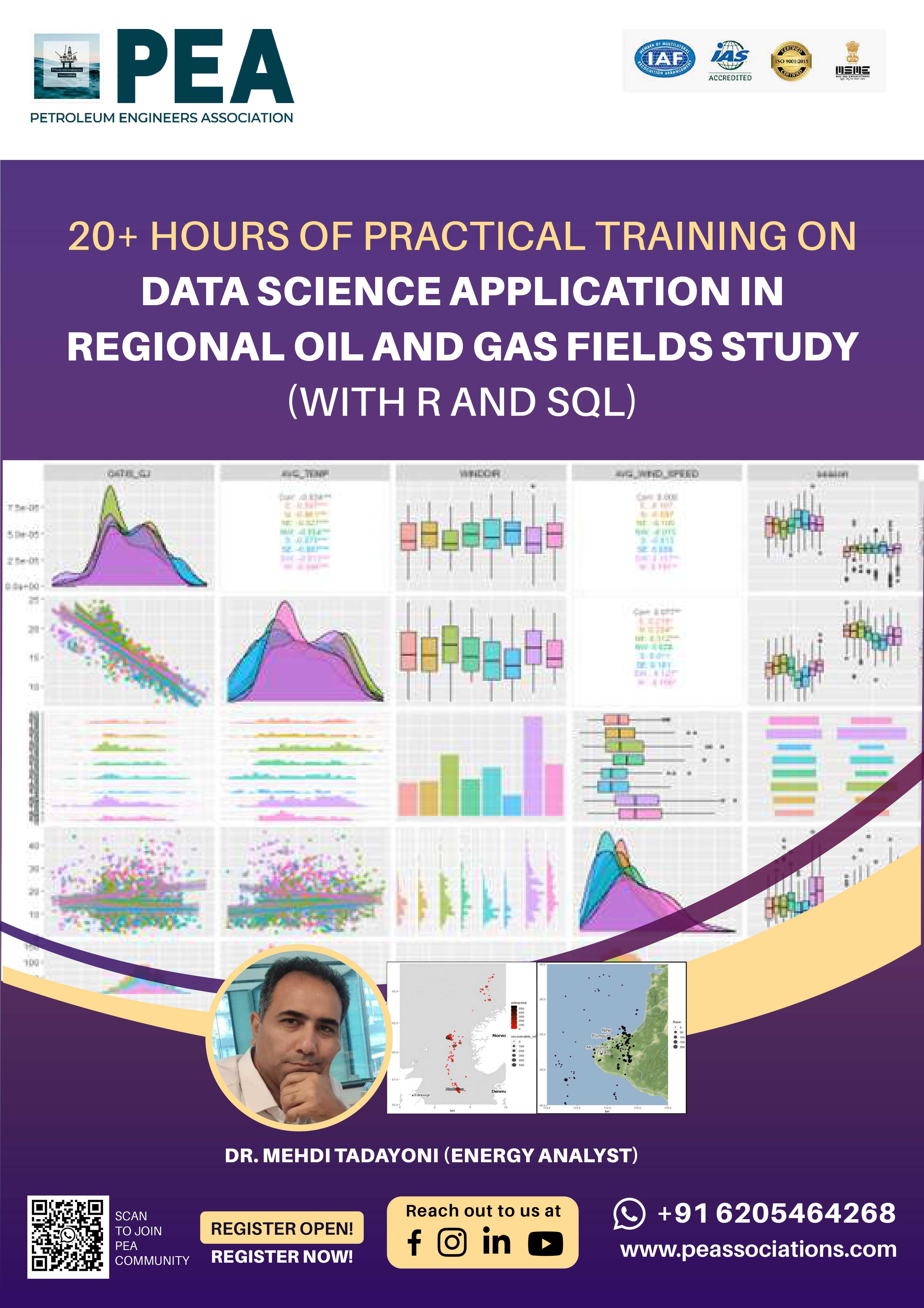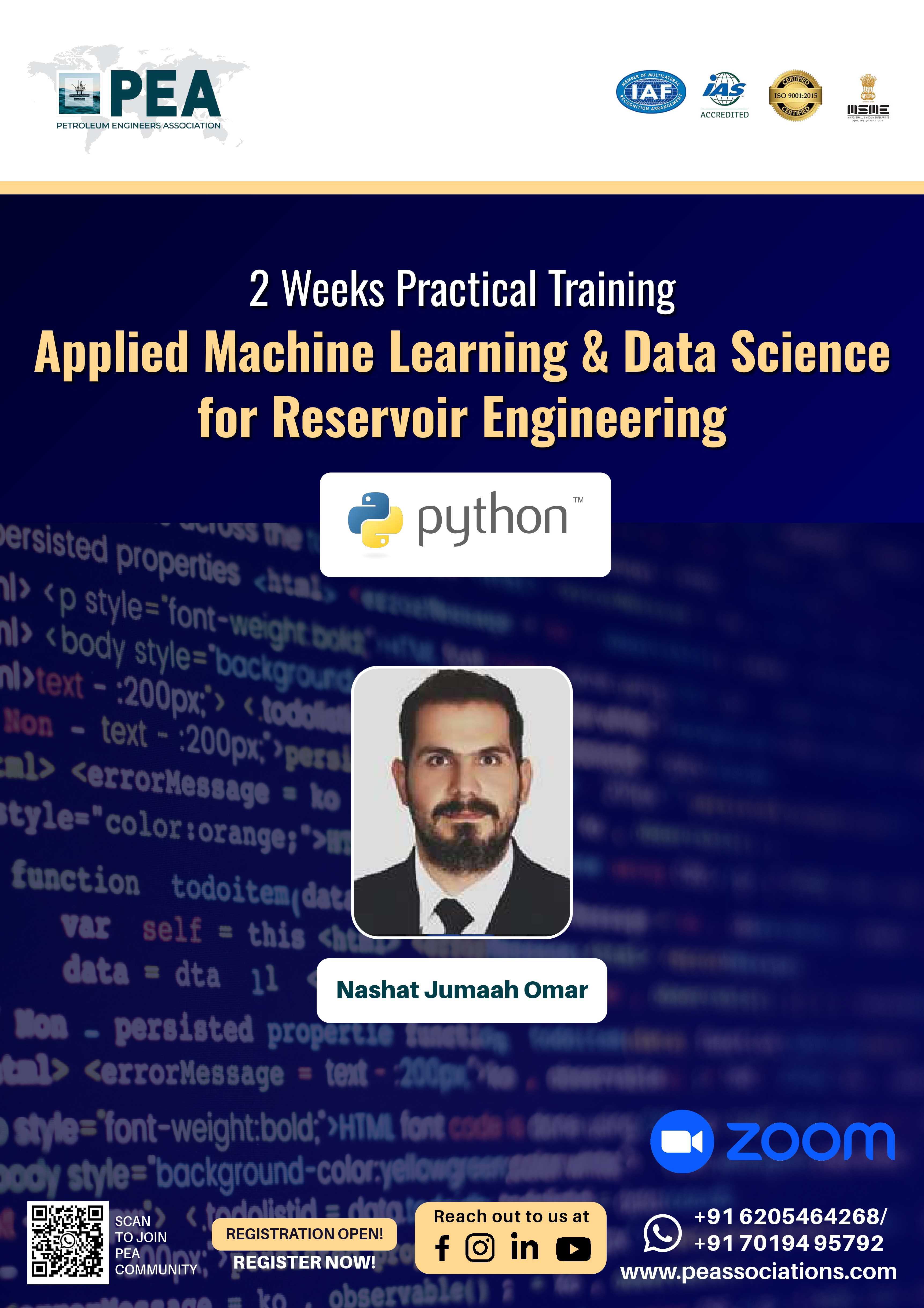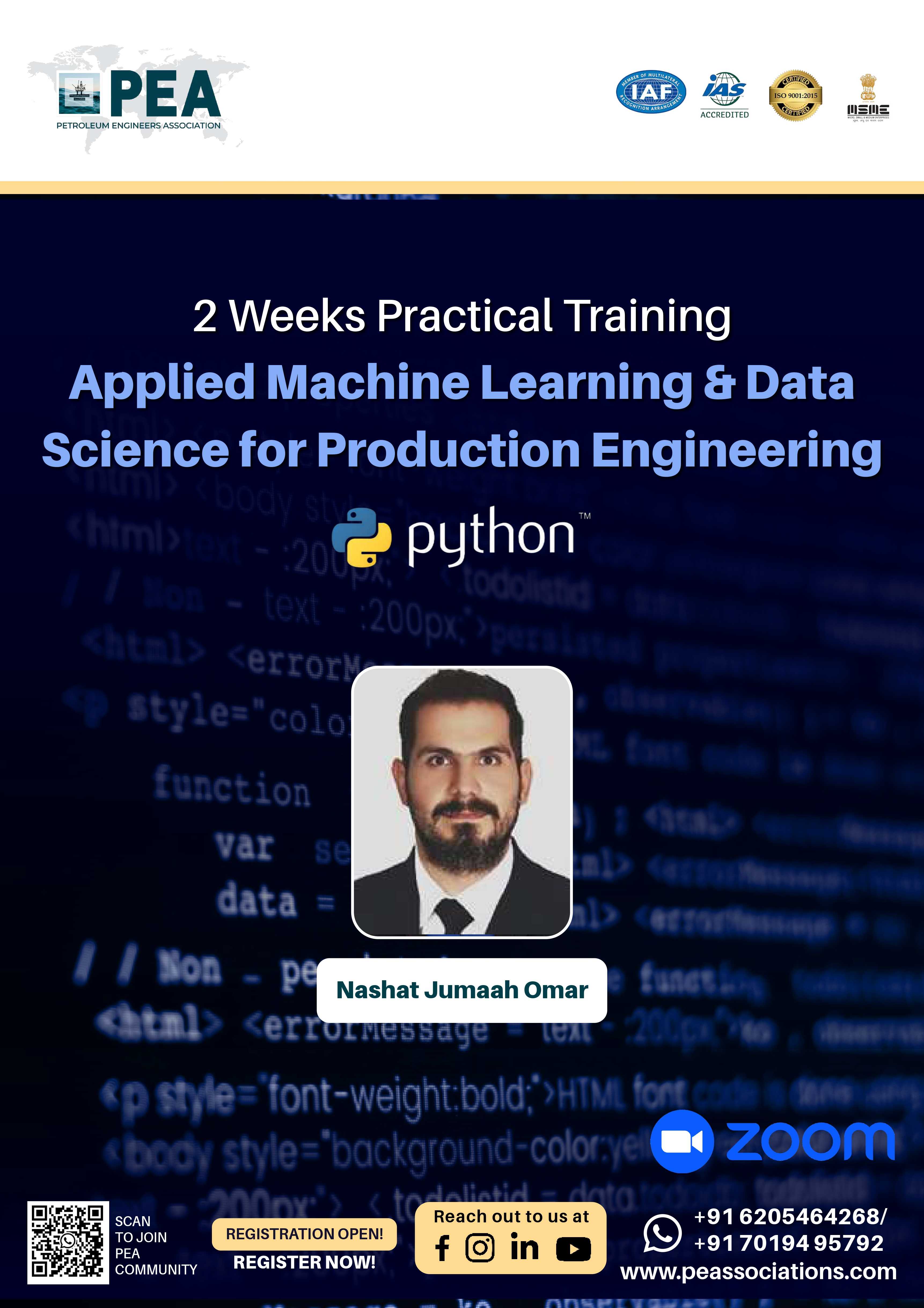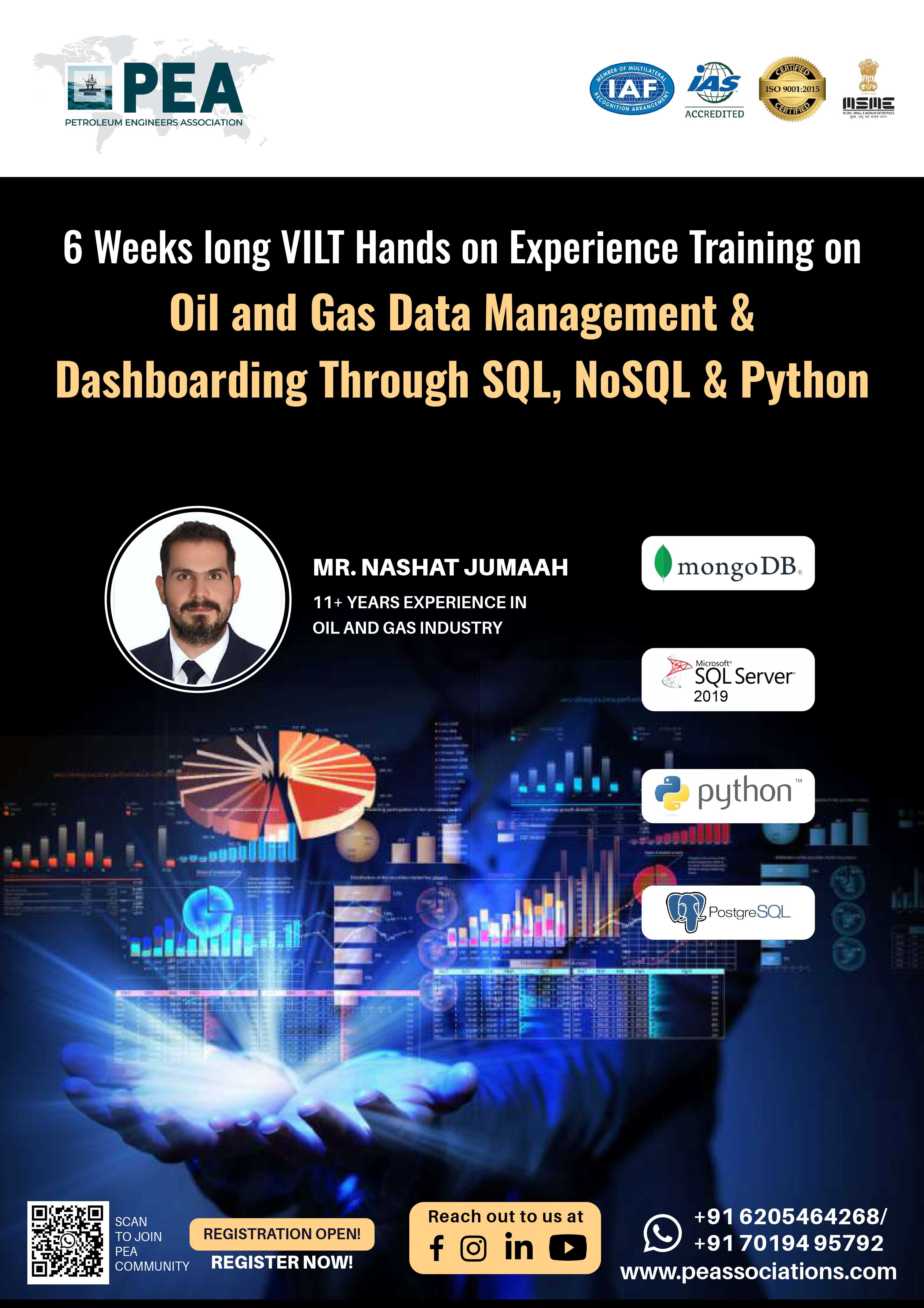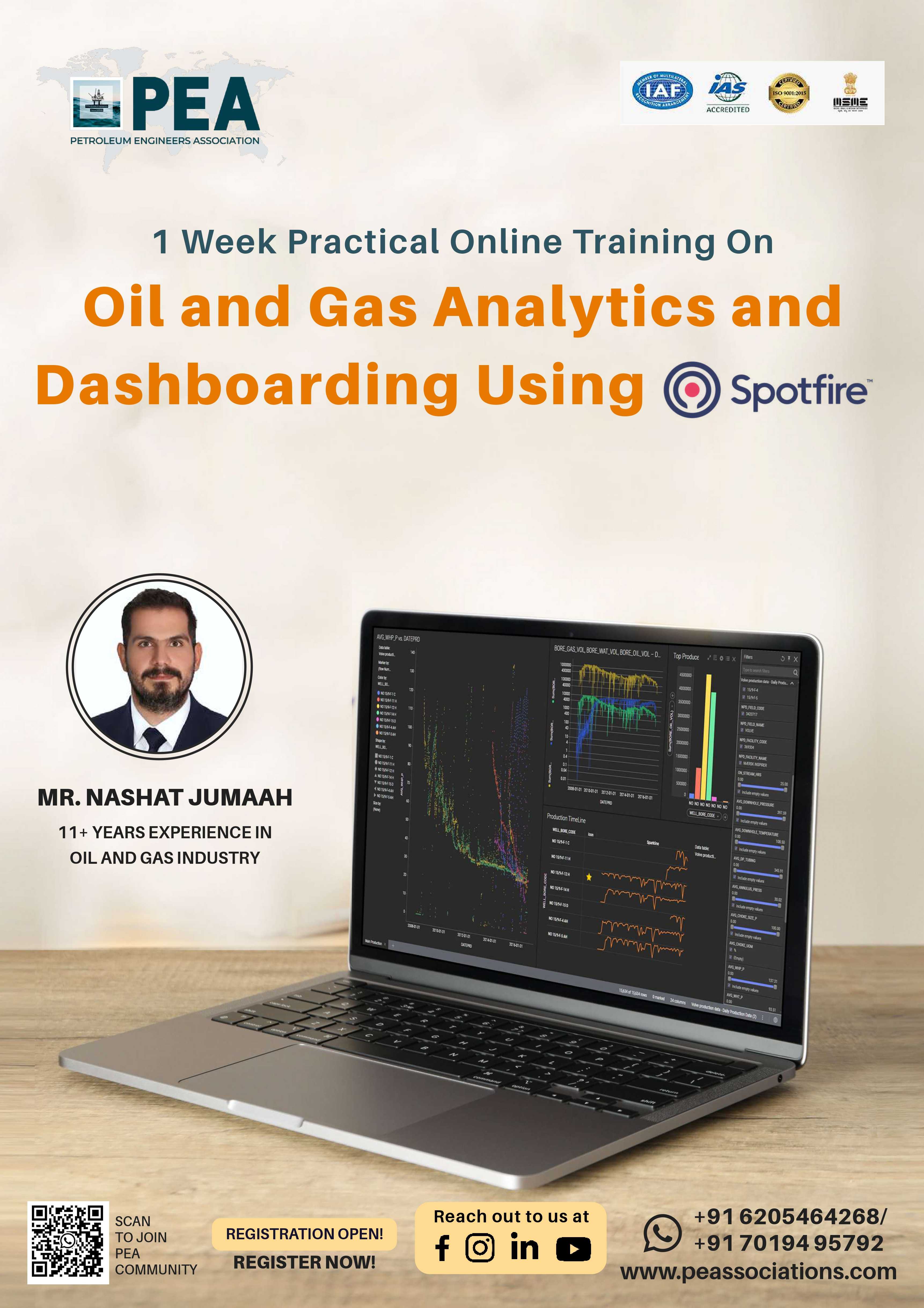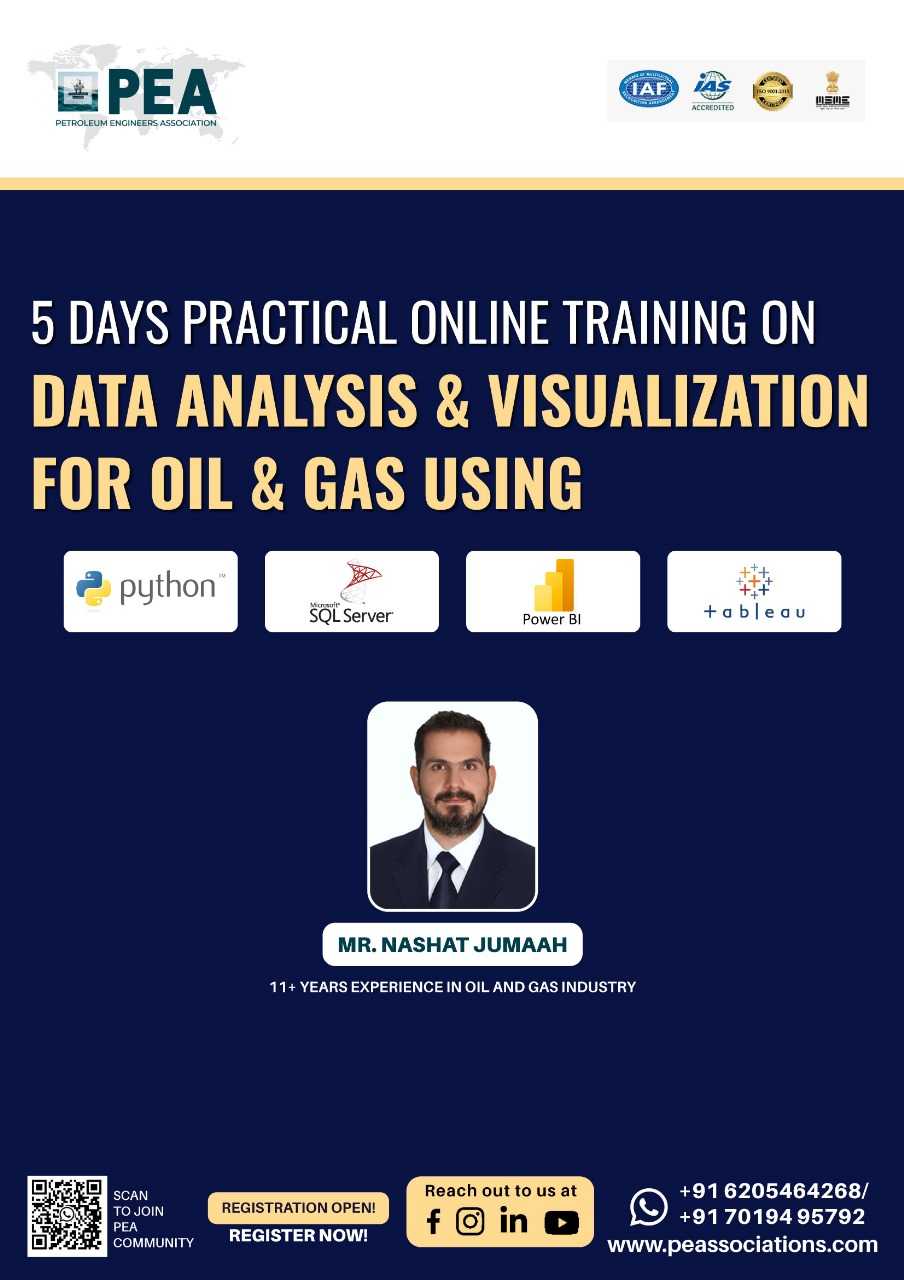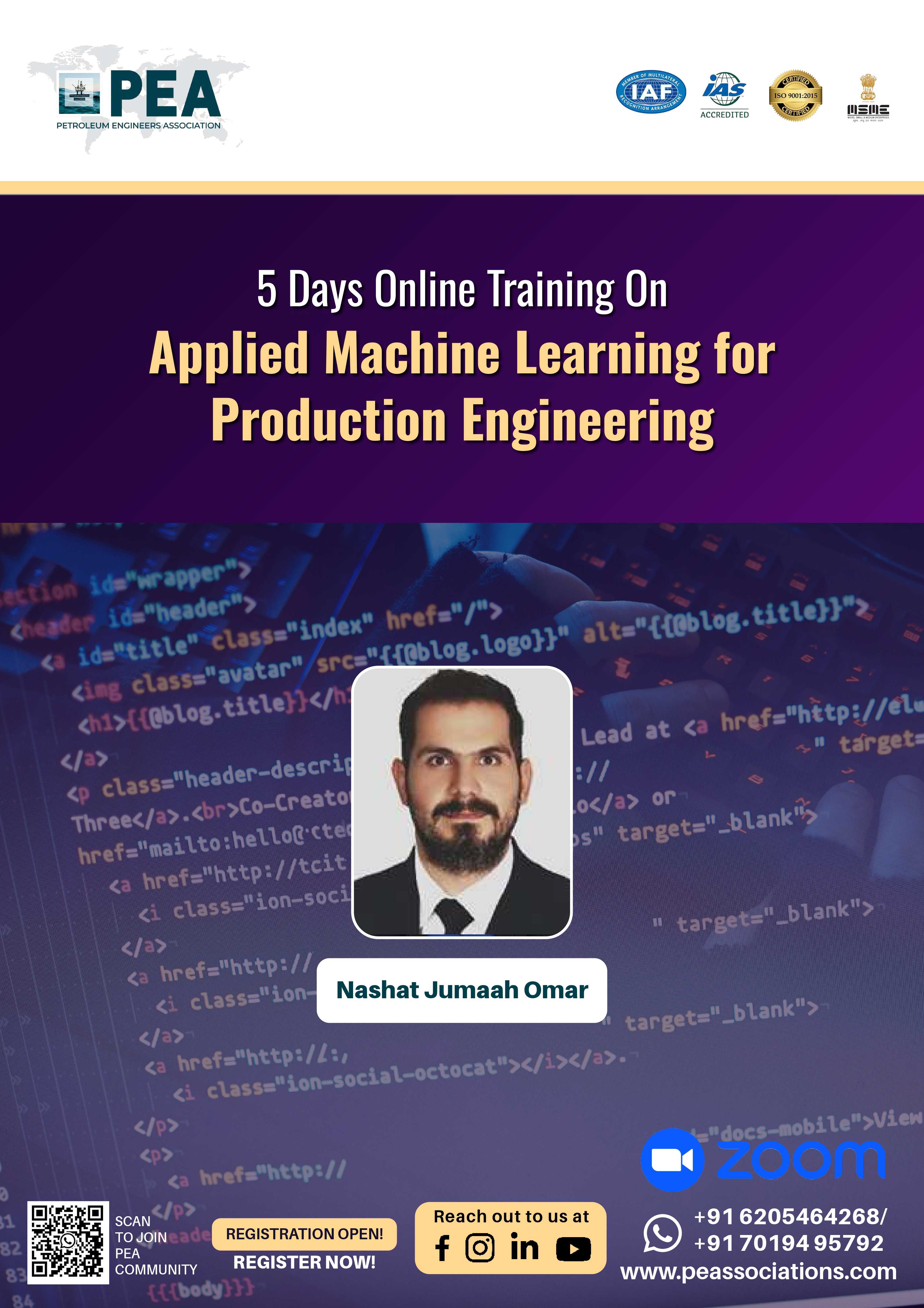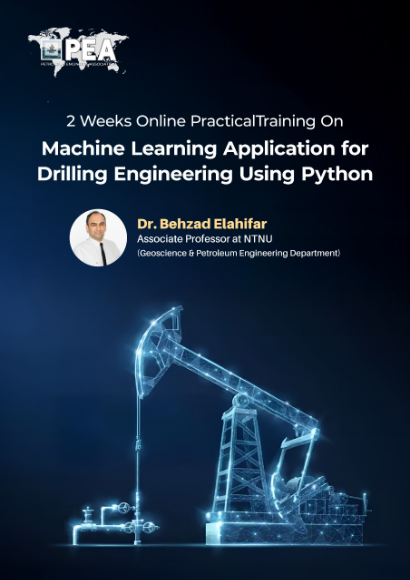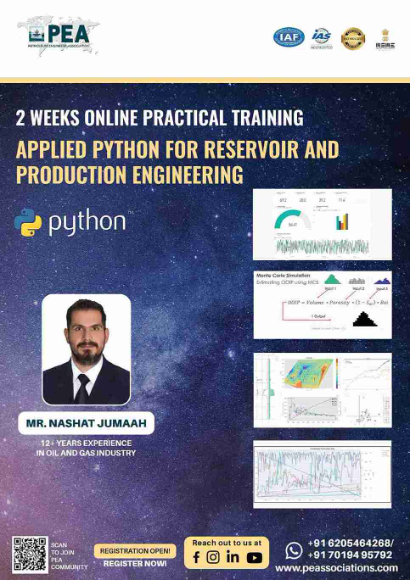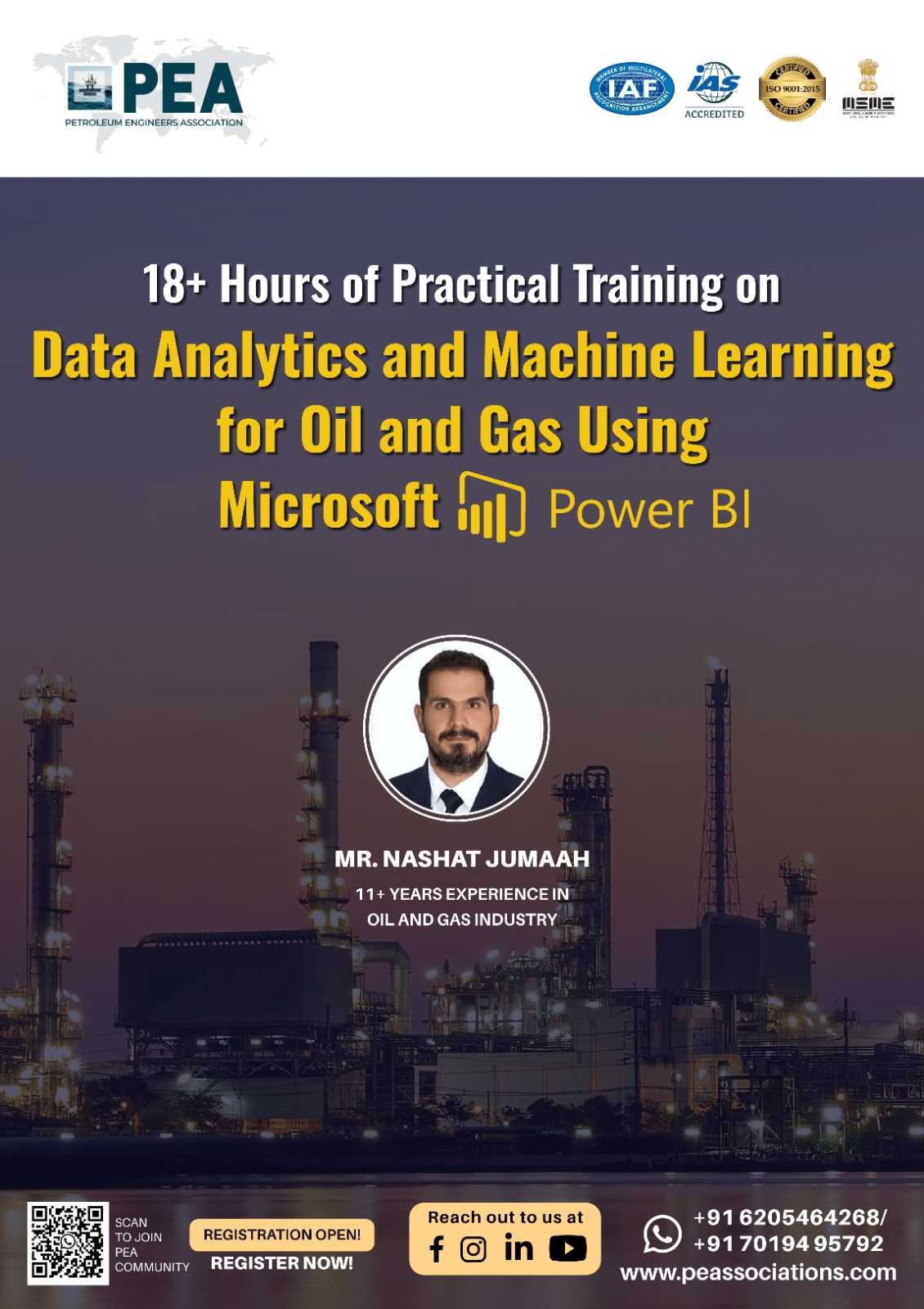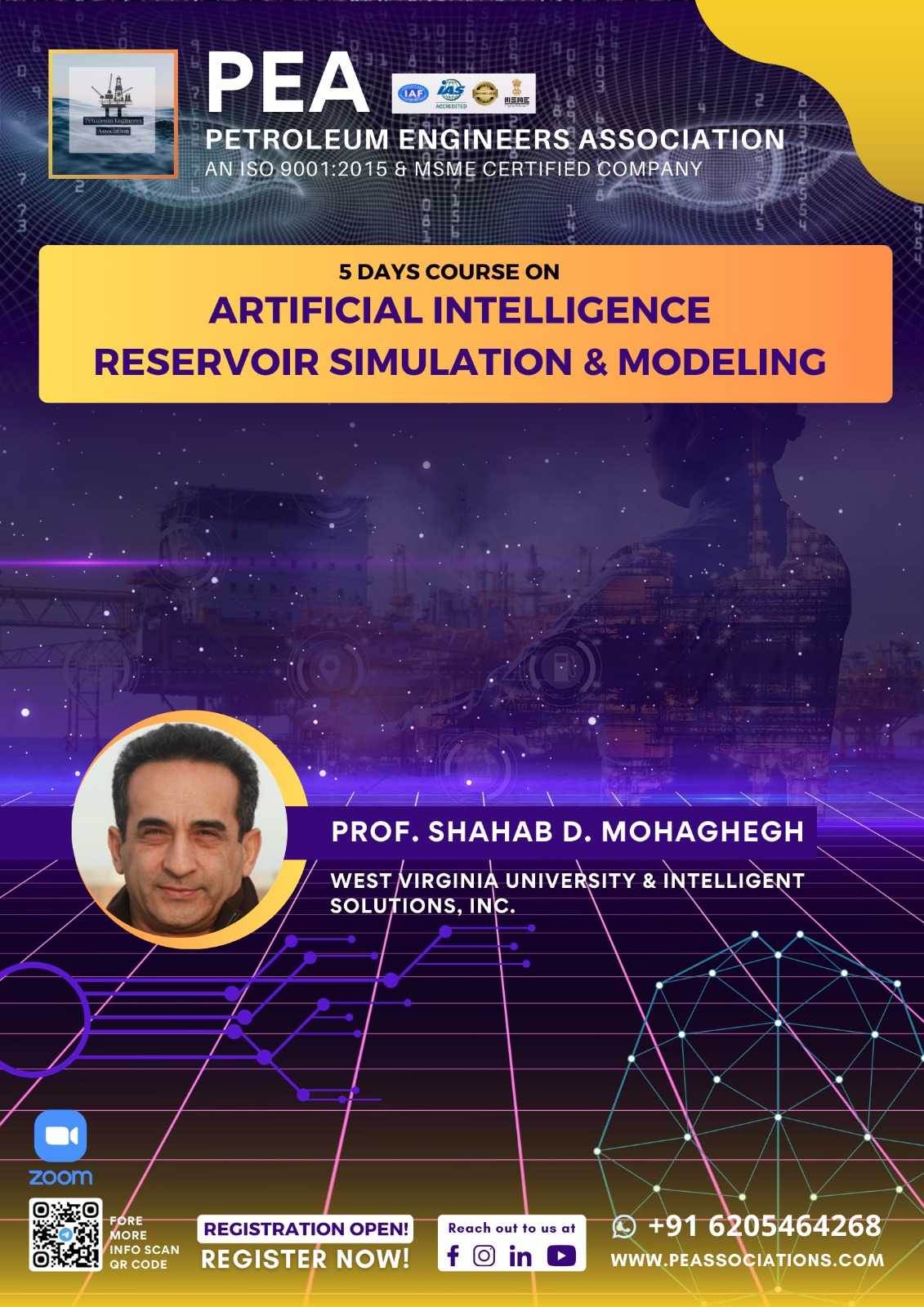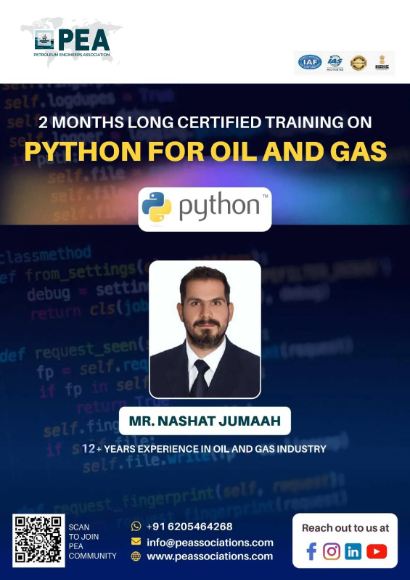Petroleum Data Analytics
Have Questions ?
Petroleum Data Analytics - PEA-PDA26
| Code | Date | Time | Duration | Location | Currency | Team of 10 Per Person | Team of 7 Per Person | Early Bird Fee Per Person | Normal Fee Per Person |
|---|---|---|---|---|---|---|---|---|---|
| PEA-PDA26 | 10 - 14 Aug 2026 | 9 PM Indian Time |
3 Hours Per Day
|
Zoom Online
|
USD
|
1850
|
2000
|
2500
|
3000
|
The Classes Will be Online Via Zoom from Monday to Friday with 3 hours / Day,
Boost your team's skills and your budget! Enjoy group discounts for collaborative learning. Send an inquiry to info@peassociations.com.
Petroleum Data Analytics
This course provides comprehensive training on Petroleum Data Analytics (PDA), the realistic application of Artificial Intelligence and Machine Learning in the upstream oil and gas industry. Taught by industry pioneer Prof. Shahab D. Mohaghegh , this program covers the technical foundations of AI and its practical use in creating advanced simulation models for reservoir management and field development. Participants will learn to distinguish between genuine AI applications and marketing hype, gaining the skills needed for informed, data-driven decision-making.
Description
Artificial Intelligence and Machine Learning is revolutionizing many industries. This technology is becoming an important point of competitive differentiation in the upstream oil and gas industry. Since optimization of production and enhanced recovery is the important issue for the petroleum industry, companies are realizing that reality and actual field measurements play much more important role in success of decision making than traditional assumptions, interpretations, and preconceived notions.
“Data” representing the actual field measurements, can provide much needed insight. Petroleum Data Analytics provides a set of tools and techniques for both conventional and unconventional resources to extract patterns and trends from data and construct predictive models to assist decision making and optimization. The most important part of Engineering Application of Artificial Intelligence and Machine Learning in the Petroleum Industry is the realistic and scientific understanding of this technology, its differences with traditional statistics and its non-engineering applications. This short course covers all such details to generate the interest in becoming Petroleum Data Analytics Engineers.
In the rapidly evolving oil and gas industry, data analytics has become a vital tool for optimizing operations and enhancing decision-making processes. This Petroleum Data Analytics course is crafted to provide participants with the knowledge and skills to turn raw data into valuable insights. With a focus on practical applications, the course aims to transform the way professionals approach data in petroleum engineering.
Upon completion of this course, participants will be able to:
Understand the history and core definitions of Artificial Intelligence and Machine Learning.
Differentiate between traditional statistics and AI & ML methodologies.
Recognize the differences between solving engineering and non-engineering problems with AI.
Apply fundamentals of Artificial Neural Networks (Deep Learning), Fuzzy Set Theory, and Evolutionary Computation.
Use Petroleum Data Analytics for data-driven reservoir modeling and creating smart proxy models.
Analyze realistic case studies, including the role of AI following the Deepwater Horizon incident.
Appreciate the importance of Explainable AI (XAI) and ethics in engineering applications.
The course is delivered through live online sessions led by a distinguished expert in the field. The methodology emphasizes practical application and real-world relevance. The curriculum is built around detailed technical presentations, engineering case studies, and examples of data-driven modeling to ensure a thorough understanding of the concepts.
By enrolling team members in this course, your organization will gain a significant competitive advantage. Your company will be better equipped to:
Improve Model Accuracy: Develop subsurface models that are free from common assumptions, biases, and simplifications.
Enhance Efficiency: Utilize fully automated history matching for coupled "reservoir + surface operations" simulation models.
Optimize Field Development: Perform comprehensive field development planning (FDP) and production optimization using fast and accurate AI-based models.
Make Better Decisions: Empower your teams to make informed decisions based on realistic and practical applications of AI, not marketing ploys.
This course will provide you with valuable skills and a deeper understanding of the next generation of industry tools. As a participant, you will:
Gain Expert Knowledge: Learn directly from Prof. Shahab D. Mohaghegh, a pioneer who has dedicated over 30 years to AI applications in petroleum engineering.
Develop In-Demand Skills: Acquire the ability to apply AI and Machine Learning to complex reservoir engineering challenges.
Enhance Critical Thinking: Learn to distinguish between authentic, powerful AI tools and the hype that has overwhelmed the industry.
Advance Your Career: Position yourself as a forward-thinking professional capable of leveraging cutting-edge technology for reservoir management and decision-making.
This course is designed for professionals involved in the planning and decision-making related to hydrocarbon assets. The target audience includes:
Petroleum Engineers
Geoscientists
Managers and Decision-Makers in NOCs, IOCs, Independents, and Service Providers
On successful completion of this training course, PEA Certificate will be awarded to the delegates
Shahab D. Mohaghegh, a pioneer in the application of artificial intelligence, machine learning and data mining in the exploration and production industry, is a professor in the Petroleum and Natural Gas Engineering Department at West Virginia University and the president and CEO of Intelligent Solutions, Inc. (ISI). He holds B.S., M.S., and Ph.D. degrees in petroleum and natural gas engineering.
Mohaghegh has authored three books (Shale Analytics – Data Driven Reservoir Modeling – Application of Data-Driven Analytics for the Geological Storage of CO 2), more than 170 technical papers and carried out more than 60 projects for independents, NOCs and IOCs. As a member of SPE he has been a Distinguished Lecturer and featured four times as the Distinguished Author in SPE’s Journal of Petroleum Technology (JPT). He is the founder of Petroleum Data-Driven Analytics, SPE’s Technical Section dedicated to AI, machine learning and data mining. United States Secretary of Energy honored him for his technical contribution in the aftermath of the Deepwater Horizon (Macondo) incident in the Gulf of Mexico and Shahab was a member of U.S. Secretary of Energy’s Technical Advisory Committee on Unconventional Resources in two administrations (2008-2014). He represented the U.S. in the International Standard Organization (ISO) on Carbon Capture and Storage (2014-2016).
Frequently Asked Questions
All course bookings made through PEA are strictly non-refundable. By registering for a course, you acknowledge and accept that all fees are payable in full and are not subject to refund under any circumstances, including changes in personal or professional commitments or partial attendance.
PEA reserves the right to make reasonable adjustments to course content, trainers, or schedules where necessary, without entitling delegates to a refund. Comprehensive details of each course — including objectives, target audience, and content — are clearly outlined before enrolment, and it is the responsibility of the delegate to ensure the course's suitability prior to booking.
For any inquiries related to cancellations or bookings, please contact our support team, who will be happy to assist you.
